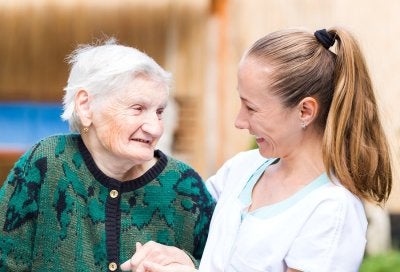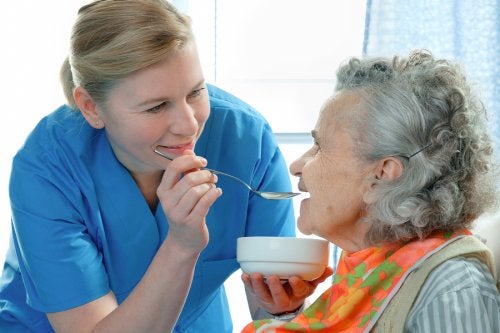-
Making Respite Care Part of Your Family’s Plan
When families have to come together to make decisions about elderly care for an aging loved one, there are several choices to make. Even if you wish to provide the bulk of the in-home care yourself, respite care is an important thing to include in your plan. No caregiver can provide care without a break and still provide the kind of support he or she wants to give a loved one. An in-home caregiver in Memphis can help you be the best caregiver you can by providing respite care.
Respite care is a short-term relief to caregivers that allows them to focus on their own well-being, while feeling confident that their loved ones needs are being met. An elder care provider can provide respite care so you can have a lunch with a friend, an afternoon on your own, or a vacation with your family. Respite care can also help you keep up work duties or even catch up on sleep. It is an important way of caring for your own wellbeing, so you can then care for your loved one.

-
Steps Seniors Can Take to Reduce Bone Fractures
Bone fractures are a significant health risk for seniors. Because many seniors suffer from bone loss, they are more vulnerable to fractures than ever before, and when fractures do occur, they can lead to prolonged loss of mobility, isolation, and depression. Fortunately, there are things that seniors and their caregivers in Memphis can do to reduce the risk of fractures and maintain their independence. Protect your bones or help an elderly love one keep his or her own bones safe with these steps.

Assess the Home
Sometimes, simply making changes around the home can drastically reduce the risk of fractures. Increase lighting in dim areas, such as adding nightlights to hallways or additional lamps in a dark room. Make sure that railings on stairs are secure and consider adding an additional rail so that there is one on each side. Remove trip hazards, like area rugs and cords, and add grab bars around the toilet and in the shower. These small changes can make a big difference in a senior’s risk of falling.
Consider Health
If you are a caregiver for an elderly loved one, consider how his or her health may impact his or her risk of bone fractures. For instance, poor eyesight can make your loved one more prone to falling and fracturing a bone, so ensure that your loved one has regular checkups. Some medications can cause dehydration, dizziness, and other side effects that can increase the risk of a fall that leads to a fracture.
Seek Help
Seniors don’t have to choose between risking a fracture by staying at home or moving into an outside facility. Elderly care providers can help with the things that seniors can no longer safely do, from cooking and cleaning to personal hygiene and running errands. By making sure your loved one doesn’t take unnecessary risks, you can help him or her stay in the comforts of home without the complications of a bone fracture.
-
Understanding What Happens at the End of Life
When a loved one needs hospice care in Memphis because he or she is approaching the end of life, there can be anxiety, particularly among family members, about what to expect. What this video for insight into what may happen at the end of life.
One researcher who has looked extensively into the dying process has found that most people receiving end of life care experience a sense of peace. Family members usually find that being present for end of life care and seeing a loved one pass is a moving experience that brings closeness and closure. Overall, hospice care and the end of life process can be an important time for family members to spend together, and most terminally ill people are peaceful, not fearful, of the process.
-
Requirements of Home Care for the Terminally Ill
When a terminally ill loved one needs care at home, whether he or she needs a caregiver while treatment is ongoing or it is time for hospice care in Memphis , there are unique needs that must be met. It is helpful to choose a caregiver with experience in home care for the terminally ill to ensure your loved one gets the necessary level of care and so you can reduce the pressure on yourself.
First and foremost, a terminally ill loved one may need practical care to assist with basic, everyday needs, such as hygiene and meal preparation. An in-home caregiver can offer this kind of support when you must be at work or when you need respite care. Your terminally ill loved one also needs care that is designed for his or her comfort and dignity. It is common for people to deal with a range of emotions while facing a terminal illness, and your loved one should never feel dismissed or like he or she is a burden to a caregiver. Hiring an experienced caregiver is the best way to make sure that a terminally ill loved one’s needs are being met.

